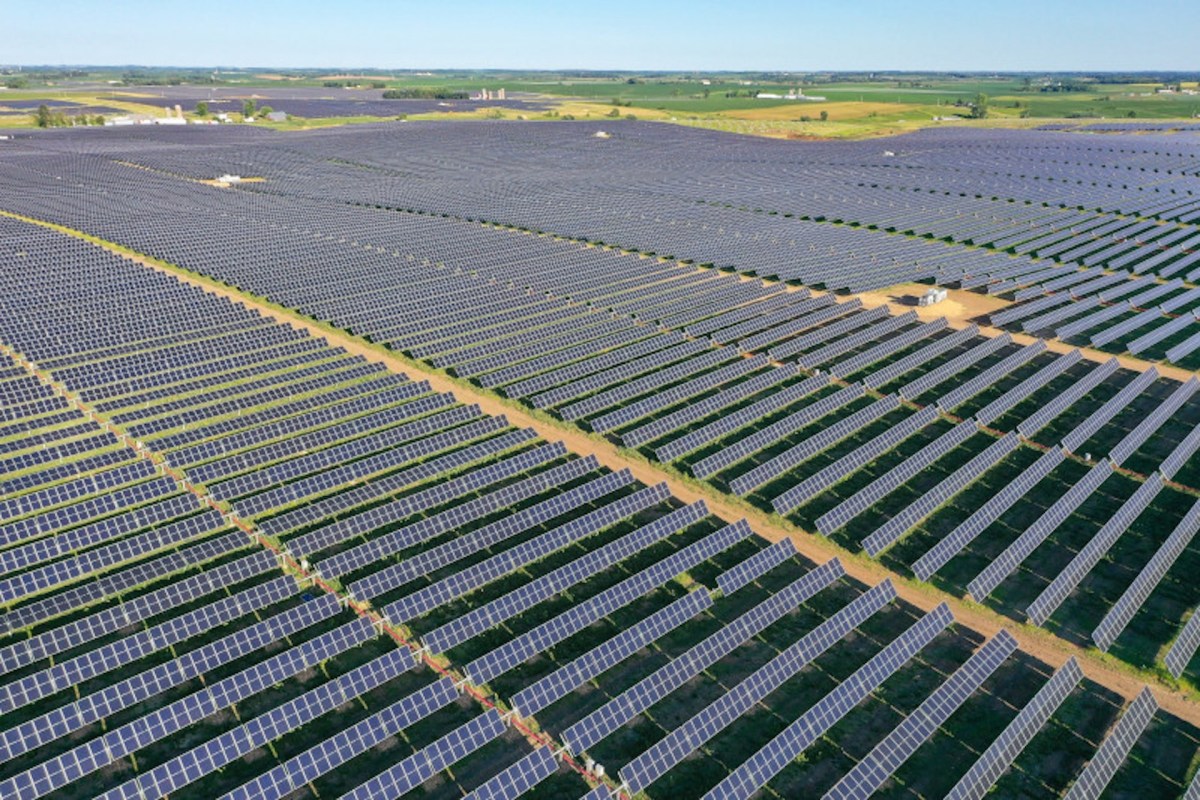In January, energy companies Madison Gas and Electric (MGE) and We Energies completed the largest solar project in Wisconsin history. The project put the state one step closer to achieving its clean energy goals, per an MGE Energy press release.
The Badger Hollow Solar Farm project boasts an impressive 830,000 double-sided solar panels that can capture the sun's energy on both sides to maximize power generation — an especially useful feature in winter. The panels also continuously track the sun's movements to produce more energy.
According to the utility, the solar farm will generate 300 megawatts of electricity, which is capable of powering about 90,000 homes.
"This groundbreaking project demonstrates our commitment to delivering a bright, sustainable future for our customers and communities," said Scott Lauber, president and CEO of We Energies, in a Business Wire news release. "From frigid winter mornings through the hottest summer days, Badger Hollow Solar Park will play an important role in helping us deliver affordable, reliable, and clean energy."
Located near the communities of Montfort and Cobb in Iowa County, the solar farm project was completed in two 150-MW phases, per MGE. The solar park's first phase came online in December 2021, and the second became operational in December 2023, providing energy to homes and businesses throughout Wisconsin.
"The completion of Badger Hollow is another step in our ongoing transition to greater use of cost-effective, carbon-free, renewable energy to serve all MGE electric customers. By 2030, we expect every MGE electric customer will have 80% fewer carbon emissions from their electricity use simply by being an MGE customer as we work toward our goal of net-zero carbon electricity," said Jeff Keebler, the chairman, president, and CEO of MGE.
According to a solar state-by-state map from the Solar Energy Industries Association, Wisconsin lags behind some other states in solar installations, but that may change in the near future.
According to Wisconsin Public Radio, the Public Service Commission of Wisconsin estimates that 11 utility-scale solar farms will begin operating in the state between 2023 and 2024. The commission also approved six future solar farm projects last year.
🗣️ Do we need more solar power plants in America?
🔘 YES 👍
🔘 NO 👎
🗳️ Click your choice to see results and speak your mind
These solar projects will help residents save on electricity bills while slashing their pollution footprint since solar power is a renewable, clean energy source. Thanks to the Inflation Reduction Act, homeowners can take advantage of around $4,600 in tax breaks when they install solar panels and save around $1,500 a year on electric bills.
As homeowners and communities adopt solar power at a rapid pace, solar panels are becoming much cheaper to produce, signaling a bright future ahead as the world transitions to sustainable energy.
Join our free newsletter for weekly updates on the coolest innovations improving our lives and saving our planet.









